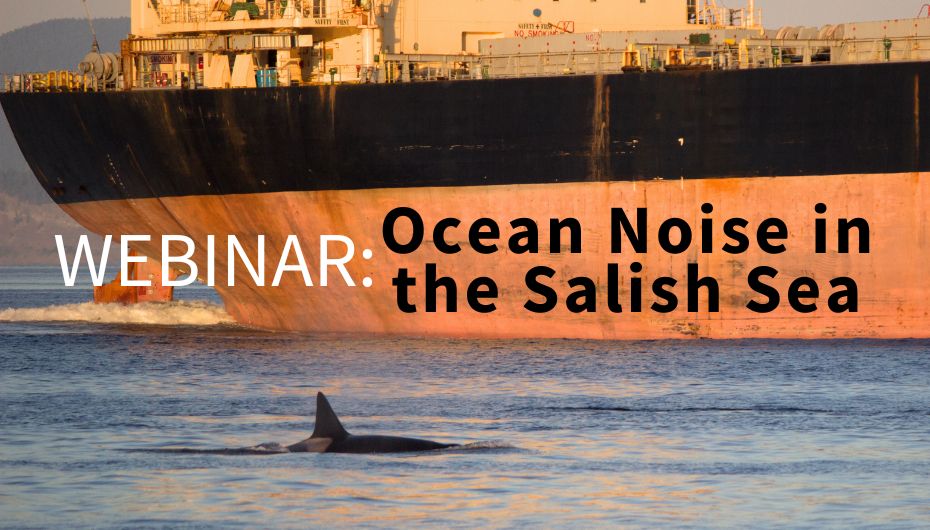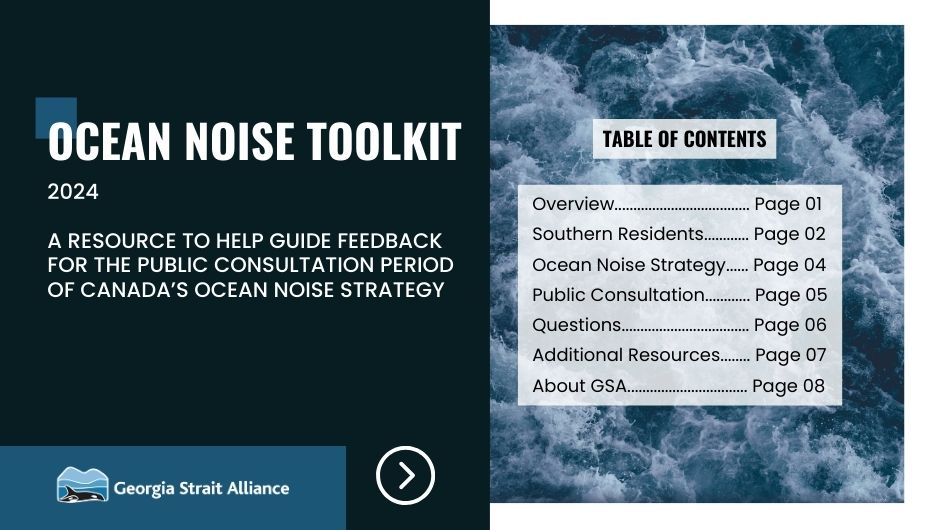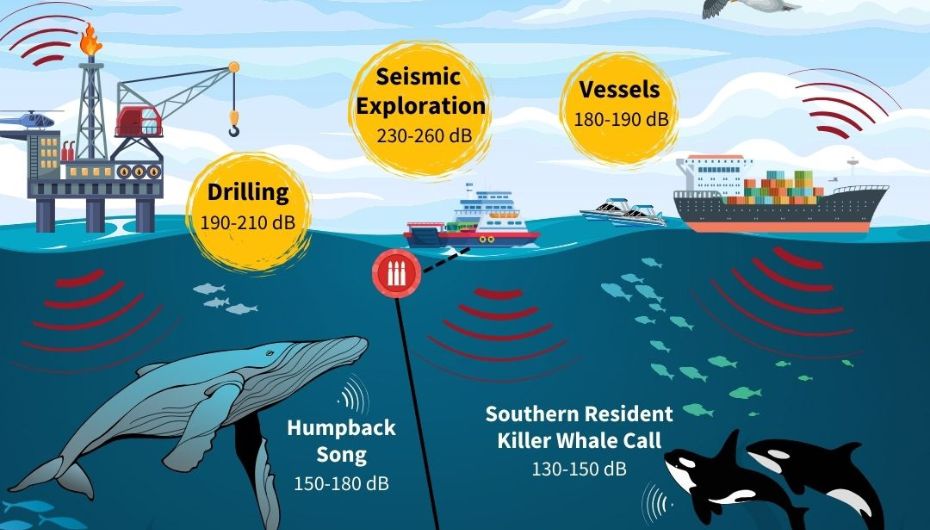
The marine environment is rich in sound- from the rumbles of underwater earthquakes to the songs of whales to the loud crackles of snapping shrimp. For marine life, sound is everything- guiding daily behaviours such as hunting, mating, navigation, and communication.
But, human-generated noise is disrupting the natural soundscape.
Anthropogenic or human-generated noise pollution from boats and ships, oil and gas drilling, and seismic surveys is altering the natural acoustic environment, impeding the ability of marine species to carry out crucial activities. In the Salish Sea, creatures like orcas, salmon, and seabirds who rely on sound for survival, face significant challenges with the constant noise from vessels and industrial development. For orcas in particular, who depend on echolocation to locate prey and communicate with their pods, noise pollution can cause disorientation, stress, and even death in rare instances.
As industrial activity and shipping traffic continue to grow, the need to address underwater noise pollution has never been more urgent. The health of the Salish Sea- and the survival of its species- hinges on our ability to mitigate the harmful impacts of underwater noise now.
Learn more about ocean noise pollution and Canada’s efforts to protect marine life below.



